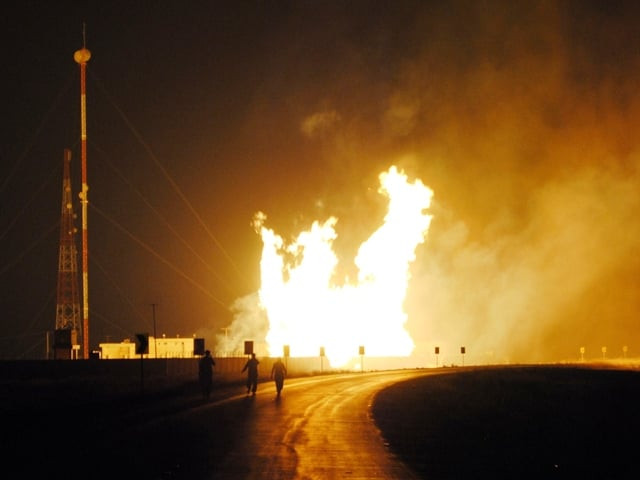Something for everyone: From Balochistan troubles, the unscrupulous can gain
Estate agents threaten non Baloch to lower land prices.

As Balochistan struggles through ethnic and sectarian violence, there are elements capitalising from the unrest.
Property dealers are increasing panic among non-Baloch residents by sending threatening letters, which scare people into fleeing Quetta and selling their property at low rates.
Nadir Sumalani, a property dealer in Saryab, an area where incidents of target killings are high, confirmed that some property dealers were involved in sending threatening letters to people from non-Baloch communities.
Sumalani also blamed Baloch militants for increasing unrest and throwing hand grenades, and killing people based on their ethnic and religious background. However, Baloch militant groups have contradicted such claims on several occasions.
A senior investigator from the police department, requesting anonymity said: “We have arrested some property dealers red-handed when they were threatening Punjabis and other non-Baloch to leave their houses.” He added that the dealers were backed by “influential people”. “They used the names of Baloch militant groups to threaten people, who panic and sell their houses and shops at low rates.”
An influx of Afghan refugees has also increased the demand. “A lot of property has been sold to Afghan nationals in Jinnah Town,” the investigator added. Afghan nationals now own plazas and bungalows in the city.
“These people hurl hand grenades at settlers in Saryab Road and Jinnah Town only to decrease property prices,” another police official said. Several other high ranking officials also confirmed the issue, speaking on condition of anonymity due to the sensitivity of the matter.
The property business in Saryab has witnessed unprecedented decline and people want so sell their houses as quickly as they can, said Din Mohammad, a property dealer.
“A man purchased a double story house for Rs5 million a few years ago. Now he is willing to sell it for Rs3.5 million,” Mohammad said. “There has been some improvement, but still a lot needs to be done,” he said.
“My uncle had been living in Quetta since 1947,” said Arsalan Ahmed, a 26-year-old resident of Jinnah Town, where target killings were on the high last year. He believes Baloch are not killing people randomly. “My uncle, his four daughters and two sons migrated to Karachi last year as target killings increased.”
“However, my uncle is still worried because Karachi is witnessing more killings than Quetta,” he added.
“There are hundred of thousands of Punjabi and Urdu speaking people working at government offices. Colonies like Multani Mohalla and human settlements in the main commercial district of Quetta continue to exist,” said journalist Arzo Rehman.
However, Arzo and Ahmed were scared to go or travel in Saryab Road, which they say is the “Gaza strip” of Quetta.
Mohammad Din, an ethnic Punjabi from Multan works in Quetta as a contractor. He is working on a house on Sariab Road, but is often hesitant to go and work in the Baloch-dominated part of Quetta.
“I don’t go to Saryab. I began construction here after the owner assured me that the situation is stable,” Din told The Express Tribune.
Until recently, many labourers from other provinces were working in Mastung, Kalat, Naushki, Khuzdar and other parts of Balochistan. However, a recent attack on labourers in Naushki, which left five people dead, has sent shockwaves and is an indication of the worsening situation in the province.
Around 113 people from other provinces were killed in Balochistan last year, while 123 were killed in the previous three years.
Target killings and attacks on settlers started in 2006 after the assassination of Nawab Akbar Bugti followed by the killing of Balaach Marri, son of veteran Baloch leader Nawab Khair Bakhsh Marri, a guerrilla commander who had reportedly been leading a militant group since 2002.
Things used to be different here. When there was peace, people from all sects and ethnicities would live together peacefully, but the last decade has taken all that away.
Published in The Express Tribune, August 15th, 2011.



















COMMENTS
Comments are moderated and generally will be posted if they are on-topic and not abusive.
For more information, please see our Comments FAQ